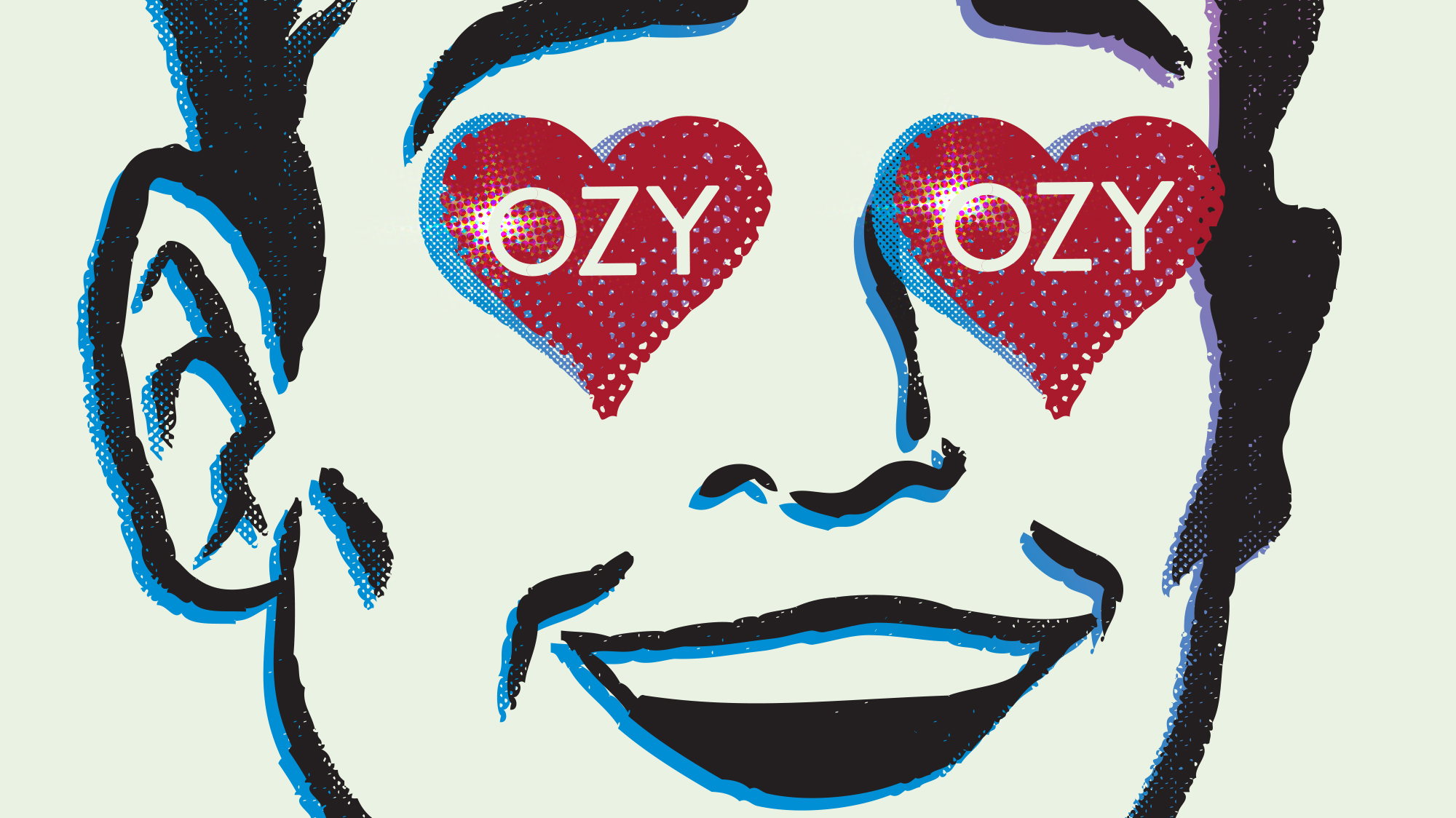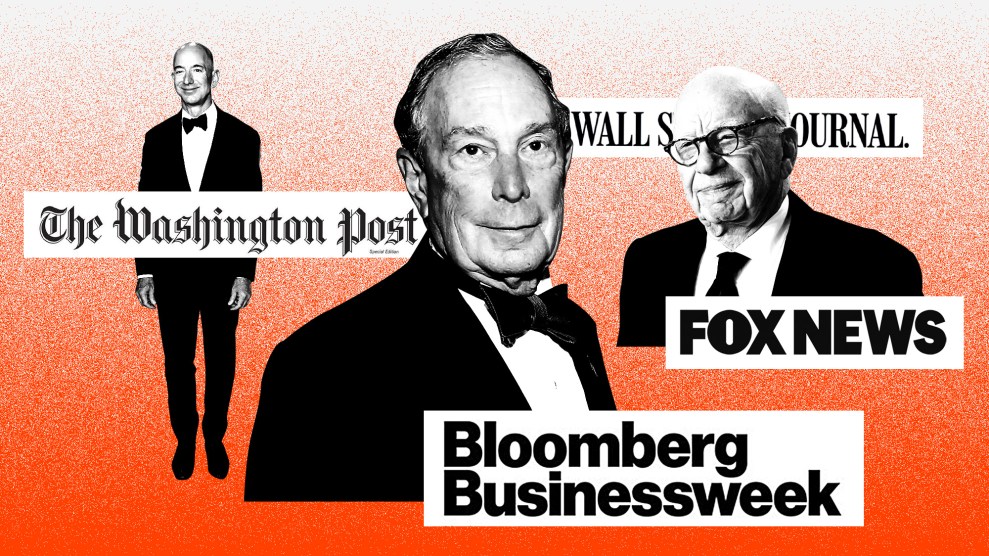If you follow media business news at all, September was a little like watching a NASCAR crash. News junkies gawked at the unraveling of Ozy Media, the Silicon Valley darling media startup whose pitch seemed lab-grown to appeal to vaguely liberal gatekeepers in corporate America and philanthropy. Look! its promise went. A news outlet reaching a vast, millennial audience with upbeat stories of people making change!
Ozy was full of headlines like “The Missouri Teenager Who Sparked a Powerful Protest” or “Pinochet Jailed Her. She’s Demolishing His Legacy.” Millions, Ozy claimed, were flocking to such stories, videos, and podcasts. Hillary Clinton, Chelsea Handler, Alex Rodriguez, Common, and Roxane Gay were among the celebrities onstage at its 2018 festival in New York’s Central Park, where, as the Washington Post put it, “everything’s sponsored by German airlines and Swedish carmakers and American tech companies.”
It all sounded so good—good enough, in fact, to draw some $83 million from a long list of investors. Good enough to attract one of America’s biggest progressive philanthropies, the Ford Foundation, which, even though Ozy was a private, for-profit company, gave it $1.95 million in grants. Good enough that, for a few years, I regularly heard people—investors and funders, especially in Silicon Valley—asking why Mother Jones wasn’t more like Ozy. Why weren’t we pulling in those big sponsorship deals? Obviously a news outlet could do good and do very, very well at the same time.
I wish, desperately, that that had been true. So many newsrooms, including Mother Jones, are fighting hard to keep their heads above water right now—we would all love a magic formula for newsroom sustainability. (I wouldn’t be doing my job if I didn’t say that we need to bring in about $175,000 in the next week and a half to finish our fall fundraising drive on track—please pitch in if you can.)
But alas, so far most of the magic formulas have turned out to be snake oil—including Ozy’s. Nothing about its story ended up holding up. Its audience was virtually nonexistent; the majority of its social followers, email addresses, YouTube views, and (potentially fraudulent) clicks seem to have been paid for. The flattering quotes it trumpeted were mostly from its own ads. Its co-founder appears to have impersonated a YouTube executive to impress Goldman Sachs. Its stories about “the new and the next” were retreads of reporting from other outlets, including Mother Jones. The list goes on. The only thing that seems to have been real are the checks it raked in from eager investors and advertisers.
And those checks were not small. Even if the revenue figures it publicly claimed—$50 million in 2020 alone—were inflated, Ozy probably pulled in tens of millions in advertising dollars, on top of that $83 million in investors’ money.
One conclusion you might draw is that the people who manage billions of dollars in ad budgets and investments are pretty gullible, and you would not be far off. For all the talk about the efficiencies of the marketplace, nothing is more inefficient than throwing wads of money at the latest shiny object.
But there’s another wrinkle that I’ve been particularly interested in. Some of the folks who poured money into Ozy and other media ventures really did want to do good. They recognized the crisis in journalism and wanted their money to help fix it. This was most obviously the case with the Ford Foundation, whose president, Darren Walker, directed grants to Ozy in 2016 and 2017. Walker was named as one of Ozy’s “86 Angelic Troublemakers” in 2020. He was also the star of an episode of Ozy’s flagship YouTube show, moderated by Ozy’s founder, Carlos Watson, who called Walker “possibly one of the more important thinkers in the country today—and yesterday, and probably over the last 30 or 40 years.” (Nowhere in that interview were viewers informed of Ford’s funding for Ozy.)
Ford has a long tradition of supporting nonprofit journalism (it has given grants to Mother Jones, though nowhere near that level) and has also funded for-profit newsrooms, giving more than $1.5 million to the New York Times in the past 12 months. The foundation wouldn’t comment on its support for Ozy when the story broke, but its stated objective is to “disrupt narratives that perpetuate inequality and lift up underrepresented voices across race, gender, and ability, so the perspectives and experiences of these communities shape a more inclusive world.” It’s a safe bet that some of Ozy’s private investors, too, believed that supporting the company would shore up journalism and contribute to a better, fairer, more inclusive public debate. And Ozy was a favorite for “socially responsible” ad spending: WPP, the world’s largest advertising company, did an exclusive deal through its subsidiary Group M under which Ozy would write stories and create videos for its clients, a contract it described as part of “our responsibility to help clients assign media dollars as a force for good.”
All of which is frankly depressing, because there is a very finite number of people with a lot of money who are interested in fixing media—and even fewer have historically invested in startups led, as Ozy was, by entrepreneurs of color. So the millions that went up in smoke in this particular trash fire were millions that didn’t go to newsrooms doing the actual work of making change.
To be sure, any startup is an uncertain proposition, as Farai Chideya—a veteran journalist whose podcast, Our Body Politic, is a must-listen—notes in Columbia Journalism Review. But, she adds, “investors are happy enough to entertain ‘an uncertain proposition’ for the right people. Like Watson, who apparently raised $83 million on handshakes, smiles, and flattery…I’d like to think that capital flows on more than flattery when our democracy depends on it.”
Chideya is putting that idea to the test as she launches her own media company. So is Lauren Williams (a former colleague here at Mother Jones), who, along with Akoto Ofori-Atta, formerly of The Trace, has started Capital B, a nonprofit news organization focused on Black communities. (You can read more about and support Capital B here.) In an op-ed for the New York Times, Williams wrote:
For me, a Black media entrepreneur, [the Ozy saga is] a stark reminder of the type of company and content that attracts the big money and how few profitable paths exist for serious Black news…Too many of the people responsible for doling out the dollars that keep the industry afloat would prefer to give money to a company like Ozy, with an Ivy League-educated pitch man selling a shiny, controversy-free vision of news and opinion, with none of the real-world stuff. Ozy was the white whale — the perfect, brand-safe opportunity for folks to say they were supporting a Black media company.
That’s exactly right, and Williams’ point applies across the journalism world. There are wealthy and powerful people who say they want to support reporting that makes a difference. Some of them do the work of figuring out how to go about that. But too many just want a feel-good story, without the risk or the tough questions. Here at Mother Jones, we are often told that we are “too controversial” for someone’s brand, and we’ve heard the same thing from some foundations.
And you know what? We don’t mind. Our work exists to shake things up, to expose truth and make change. If that’s “controversial,” we’re happy to wear that label. And we’re happy that you, the people for whom we do it, are actual humans, not digital phantoms conjured to fool the big-money gatekeepers. In the end, it seemed fitting that Ozy named itself after Shelley’s poem Ozymandias, an ode to the transience of power:
Nothing beside remains. Round the decay
Of that colossal Wreck, boundless and bare
The lone and level sands stretch far away.
















